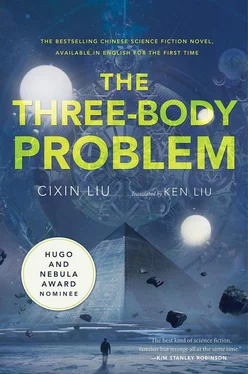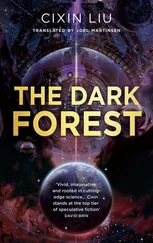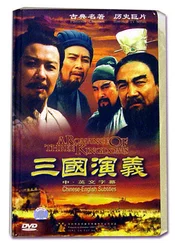Those who survived that initial period gradually became numb as the ruthless struggle sessions continued. The protective mental shell helped them avoid total breakdown. They often seemed to be half asleep during the sessions and would only startle awake when someone screamed in their faces to make them mechanically recite their confessions, already repeated countless times.
Then, some of them entered a third stage. The constant, unceasing struggle sessions injected vivid political images into their consciousness like mercury, until their minds, erected upon knowledge and rationality, collapsed under the assault. They began to really believe that they were guilty, to see how they had harmed the great cause of the revolution. They cried, and their repentance was far deeper and more sincere than that of those Monsters and Demons who were not intellectuals.
For the Red Guards, heaping abuse upon victims in those two latter mental stages was utterly boring. Only those Monsters and Demons who were still in the initial stage could give their overstimulated brains the thrill they craved, like the red cape of the matador. But such desirable victims had grown scarce. In Tsinghua there was probably only one left. Because he was so rare, he was reserved for the very end of the struggle session.
Ye Zhetai had survived the Cultural Revolution so far, but he remained in the first mental stage. He refused to repent, to kill himself, or to become numb. When this physics professor walked onto the stage in front of the crowd, his expression clearly said: Let the cross I bear be even heavier.
The Red Guards did indeed have him carry a burden, but it wasn’t a cross. Other victims wore tall hats made from bamboo frames, but his was welded from thick steel bars. And the plaque he wore around his neck wasn’t wooden, like the others, but an iron door taken from a laboratory oven. His name was written on the door in striking black characters, and two red diagonals were drawn across them in a large X.
Twice the number of Red Guards used for other victims escorted Ye onto the stage: two men and four women. The two young men strode with confidence and purpose, the very image of mature Bolshevik youths. They were both fourth-year students [4] Translator’s Note: Chinese colleges (and Tsinghua in particular) have a complicated history of shifting between four-year, five-year, and three-year systems up to the time of the Cultural Revolution. I’ve therefore avoided using American terms such as “freshman,” “sophomore,” “junior,” and “senior” to translate the classes of these students.
majoring in theoretical physics, and Ye was their professor. The women, really girls, were much younger, second-year students from the junior high school attached to the university. [5] Translator’s Note: In the Chinese education system, six years in primary school are typically followed by three years in junior high school and three years in high school. During the Cultural Revolution, this twelve-year system was shortened to a nine- or ten-year system, depending on the province or municipality. In this case, the girl Red Guards are fourteen.
Dressed in military uniforms and equipped with bandoliers, they exuded youthful vigor and surrounded Ye Zhetai like four green flames.
His appearance excited the crowd. The shouting of slogans, which had slackened a bit, now picked up with renewed force and drowned out everything else like a resurgent tide.
After waiting patiently for the noise to subside, one of the male Red Guards turned to the victim. “Ye Zhetai, you are an expert in mechanics. You should see how strong the great unified force you’re resisting is. To remain so stubborn will lead only to your death! Today, we will continue the agenda from the last time. There’s no need to waste words. Answer the following question without your typical deceit: Between the years of 1962 and 1965, did you not decide on your own to add relativity to the intro physics course?”
“Relativity is part of the fundamental theories of physics,” Ye answered. “How can a basic survey course not teach it?”
“You lie!” a female Red Guard by his side shouted. “Einstein is a reactionary academic authority. He would serve any master who dangled money in front of him. He even went to the American Imperialists and helped them build the atom bomb! To develop a revolutionary science, we must overthrow the black banner of capitalism represented by the theory of relativity!”
Ye remained silent. Enduring the pain brought by the heavy iron hat and the iron plaque hanging from his neck, he had no energy to answer questions that were not worth answering. Behind him, one of his students also frowned. The girl who had spoken was the most intelligent of the four female Red Guards, and she was clearly prepared, as she had been seen memorizing the struggle session script before coming onstage.
But against someone like Ye Zhetai, a few slogans like that were insufficient. The Red Guards decided to bring out the new weapon they had prepared against their teacher. One of them waved to someone offstage. Ye’s wife, physics professor Shao Lin, stood up from the crowd’s front row. She walked onto the stage dressed in an ill-fitting green outfit, clearly intended to imitate the military uniform of the Red Guards. Those who knew her remembered that she had often taught class in an elegant qipao, and her current appearance felt forced and awkward.
“Ye Zhetai!” She was clearly unused to such theater, and though she tried to make her voice louder, the effort magnified the tremors in it. “You didn’t think I would stand up and expose you, criticize you? Yes, in the past, I was fooled by you. You covered my eyes with your reactionary view of the world and science! But now I am awake and alert. With the help of the revolutionary youths, I want to stand on the side of the revolution, the side of the people!”
She turned to face the crowd. “Comrades, revolutionary youths, revolutionary faculty and staff, we must clearly understand the reactionary nature of Einstein’s theory of relativity. This is most apparent in general relativity: Its static model of the universe negates the dynamic nature of matter. It is anti-dialectical! It treats the universe as limited, which is absolutely a form of reactionary idealism….”
As he listened to his wife’s lecture, Ye allowed himself a wry smile. Lin, I fooled you? Indeed, in my heart you’ve always been a mystery. One time, I praised your genius to your father—he’s lucky to have died early and escaped this catastrophe—and he shook his head, telling me that he did not think you would ever achieve much academically. What he said next turned out to be so important to the second half of my life: “Lin Lin is too smart. To work in fundamental theory, one must be stupid.”
In later years, I began to understand his words more and more. Lin, you truly are too smart. Even a few years ago, you could feel the political winds shifting in academia and prepared yourself. For example, when you taught, you changed the names of many physical laws and constants: Ohm’s law you called resistance law, Maxwell’s equations you called electromagnetic equations, Planck’s constant you called the quantum constant…. You explained to your students that all scientific accomplishments resulted from the wisdom of the working masses, and those capitalist academic authorities only stole these fruits and put their names on them.
But even so, you couldn’t be accepted by the revolutionary mainstream. Look at you now: You’re not allowed to wear the red armband of the “revolutionary faculty and staff”; you had to come up here empty-handed, without the status to carry a Little Red Book…. You can’t overcome the fault of being born to a prominent family in pre-revolutionary China and of having such famous scholars as parents.
Читать дальше












